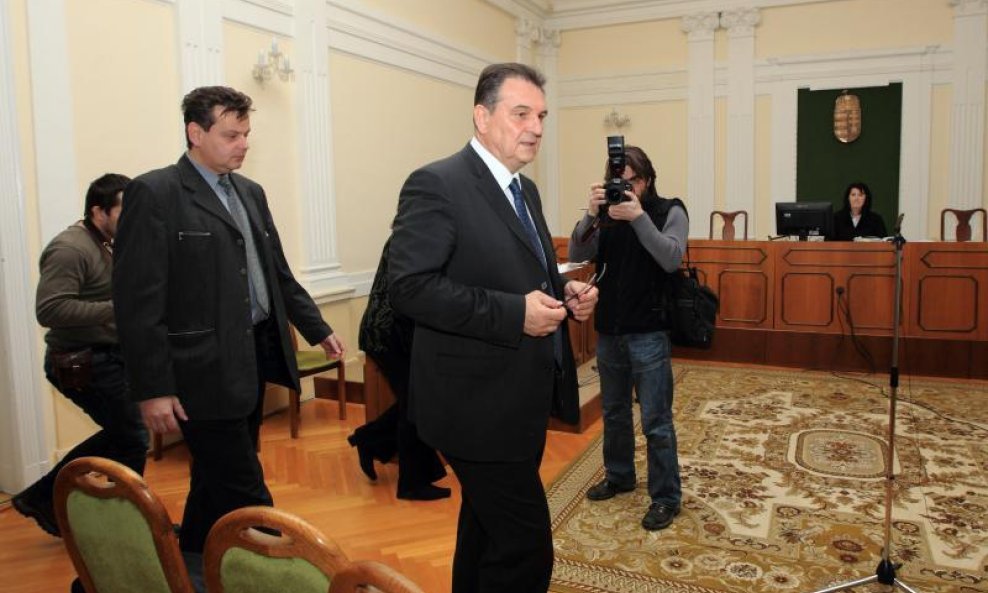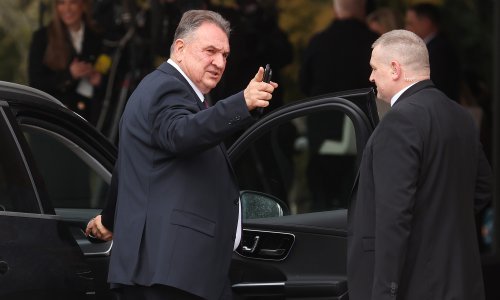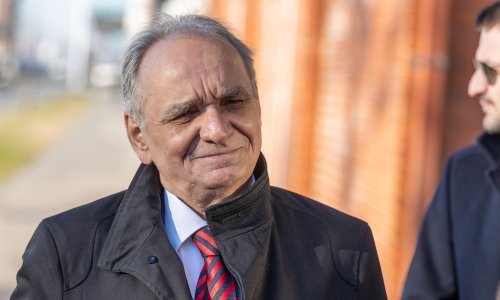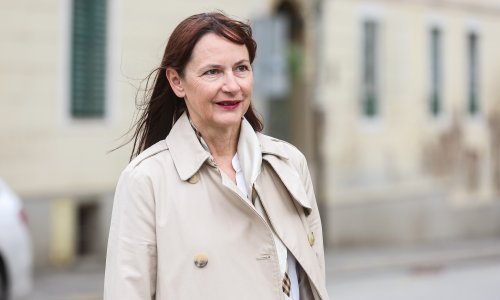Wednesday's hearing in the trial of Croatia's First Deputy Prime Minister Radimir Cacic, charged with causing a traffic accident with two fatalities, ended with testimonies of two traffic experts who challenged one another's views on whether Cacic had driven too fast and failed to adjust his driving to road conditions before causing the accident on the Nagykanisza-Budapest motorway in January 2010 in which two people sustained fatal injuries.
While the findings of expert Mihaly Rektor show that Cacic did not drive too fast and that the two passengers in the Skoda Fabia sustained fatal injuries when their car crashed into the motorway barrier, expert Zoltan Lovasz claimed the accident had been caused by speeding.
Allowing that Cacic might have been driving below 140-150 kilometres per hour, as claimed in previous findings, Lovasz said today he believed that Cacic had failed to adjust his driving to road conditions.
After today's hearing, Cacic addressed Croatian reporters who arrived in Kaposvar to cover the trial, saying that all witnesses, including expert witnesses, had corroborated his claims that he had driven according to regulations, and that a cloud of fog had led to the accident.
"It remains to be seen how the accident happened if all of us were driving properly," Cacic said.
Asked whether he would withdraw from politics if he was given an unconditional prison sentence, Cacic said that "if the degree of my negligence, which I admit to have shown, is such that I will be given an unconditional sentence, I will leave politics".
The next hearing is set for 17 April.
The Skoda Fabia which Cacic smashed into with his Chrysler on the Nagykanisza-Budapest motorway in January 2010, was driven by Katalin Liptak. She and Zoltanne Hitter survived the crash, but Liptak's 81-year-old mother and 60-year-old husband later died of injuries they sustained in the crash.
At his initial appearance in court, Cacic said he felt responsible and expressed regret, but rejected the charge that he had driven too fast, claiming that visibility had been poor.
































